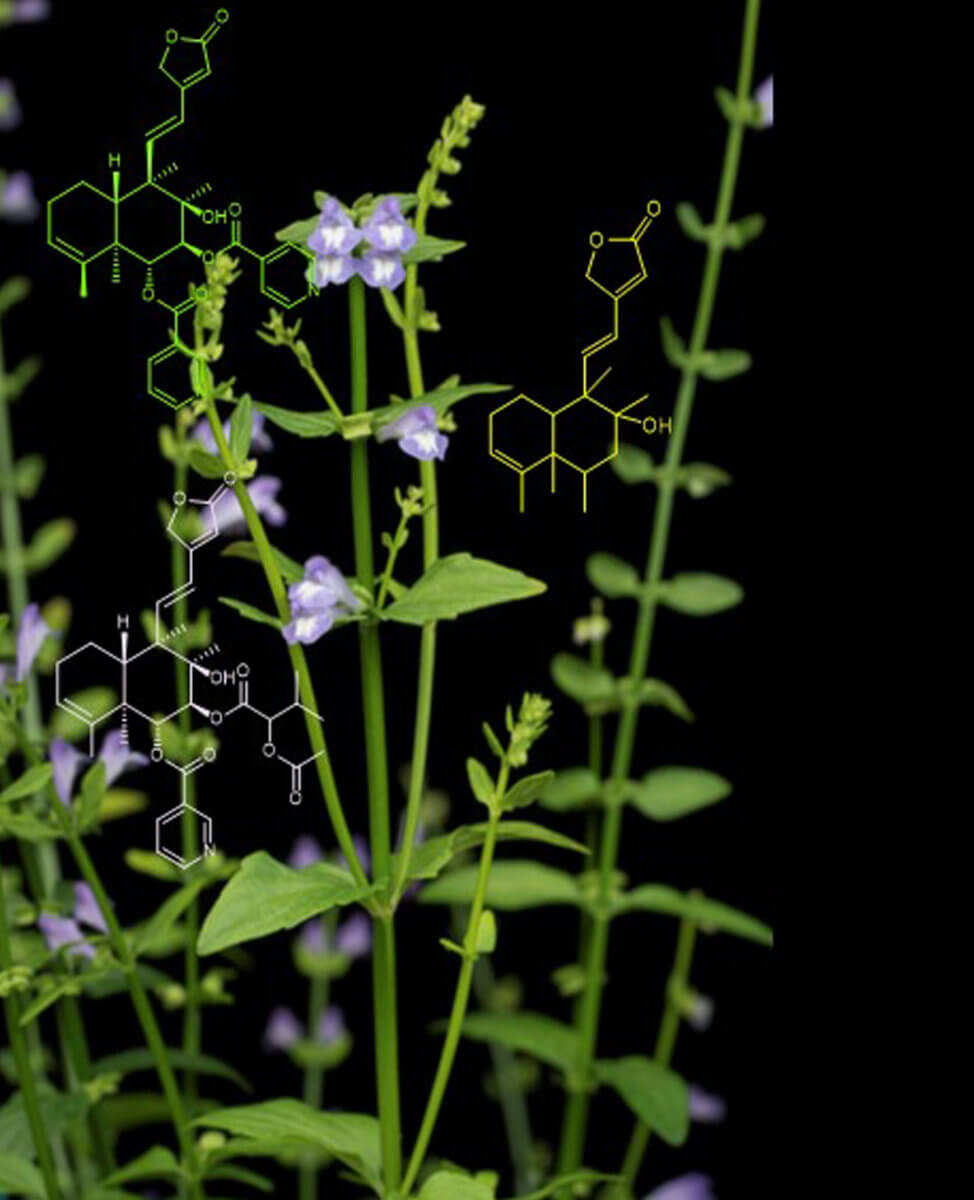NORWICH, England — The medicinal herb called barbed skullcap (Scutellaria barbata), or banzhilian in China, is known to produce its very own cancer-fighting compounds. Up until now, exactly how the plant achieves this feat had been a mystery. New collaborative research conducted by Chinese and British scientists, however, looks to have answered this longtime evolutionary secret. Scientists now say they’ve pinpointed the genes that make up the biochemical pathway behind the anti-cancer activity of the herb.
As part of the CEPAMS collaboration, researchers used DNA sequencing the put together the genomic sequence of barbed skullcap. That feat provided the research team with the genetic information (a microevolutionary history) needed to identify how barbed skullcap creates the compound known as scutebarbatine A, which fights against numerous varieties of cancer cells.
“We have found that the primary metabolite has activity against cancer cells but not non cancer cells which is especially important for an anti-cancer metabolite. Now we are looking to develop synthetic methods for producing more of the lead compound,” says Professor Cathie Martin, Group Leader at the John Innes Centre and a study co-author, in a media release.
In terms of Traditional Chinese Medicine (TCM), in order to isolate medicinal chemistry from a plant, the herb must be boiled in water for a period of two hours. After that, the extract is dried to produce a powder and taken as a decoction (concentrated liquid). Equipped with the new knowledge study authors posit they are quite close to being able to synthesize big quantities of compounds in both a faster and more sustainable fashion – all using a host such as yeast.

“This is a fantastic collaboration about developing interesting drug leads from natural resources and shows the practical value of focusing on the microevolution of a species” Prof. Martin adds.
The genus of the barbed skullcap has been used for centuries in Traditional Chinese Medicine to treat numerous medical conditions and issues. Clinical projects have even concluded that preparations based on Scutellaria barbata during chemotherapy are capable of lowering one’s risk of metastatic tumors.
“Natural products have long been the lead compounds for the discovery of new drugs. By following the trail of the traditional Chinese plants, we can develop new anti-cancer medicines and this research marks a crucial step in that direction,” explains Dr. Evangelos Tatsis, CEPAMS Group Leader based at Shanghai.
Plant-based traditional medicines have been used in scientific settings to spark new drug discovery research directions for quite some time, and plant natural products like vinblastine and taxol are used clinically as anticancer drugs. TCM, specifically, is one of the best catalogued systems featuring empirical information regarding the therapeutic properties of herbal remedies. Anti-cancer drugs crafted using traditional Chinese medicine even show higher efficacy than chemical synthetic drugs, and offer fewer toxic side effects.
The study is published in Molecular Plant.
